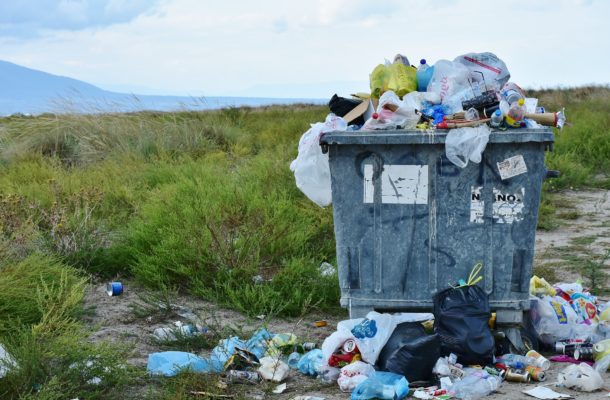South Australia’s supermarket bag ban won’t cut plastic pollution

South Australia knows that banning single-use plastic bags doesn’t stop plastic from being used – it just means people will buy it instead. When supermarkets around the country stop giving out single-use bags by 1st July, they’ll profit more from selling thicker plastic shopping bags and plastic bin liners mislabelled as ‘green and degradable’.
Bin liner sales increased by 80 percent and 9 out of 10 households continued to line their bins with plastic bags after South Australia banned single use shopping bags in 2009, according to research in 2012.
Replacing a plastic bag with a plastic bag that is 4 times thicker introduces more plastic into the environment and allows supermarkets to start making a profit from plastic instead of giving it away.
That’s why on Earth Day, on Sunday 22 April, we all need to take a stand, say no to plastic bags and choose compostable instead. Earth Day is a global event that aims to end plastic pollution by promoting alternatives to fossil fuel-based materials and changing human behaviour concerning plastics.
I support the push to change consumer behaviour however we can do it with a compostable product to immediately stop the introduction of more plastic into the environment. In one week we go through 10 billion plastic bags around the world, yet only 1% of plastic bags are recycled globally… That’s one million bags a minute.
Composting recycles organic waste which reduces harmful greenhouse gas emissions, saves water and conserves landfill space. Emerging technology is making compostable bags an increasingly viable alternative to plastic bags, so we have no excuse.
We live in an era where plastic is a global problem of incredible proportions, but we also live in an era of convenience. The good thing is that we now don’t have to compromise convenience because with compostable bags we can have both.
The bags are made from renewable organic matter and their strength is improving all the time. We are now supplying a long list of shops and online stores and the demand is increasing because our customers want to make greener choices and do their bit for the environment.
There is no doubt compostable is the best end of life option for a bin liner, ziplock bag, dog poo bag or carry bag because it breaks down into organic matter without toxic residues.
Composting is nature’s way to sequester carbon back into the earth. Recycling organic waste diverts it from landfill where it produces the greenhouse gases methane and carbon dioxide which contribute to global warming. When compost is used as a soil fertiliser it adds essential nutrients back to the earth which reduces the need for chemical fertilisers to grow food.
Be careful though, as some bags labelled ‘green and degradable’ can be misleading because they’re just plastic bags only with chemicals added so they break down faster. They are not compostable. This mislabelling makes it hard for consumers to make a truly green choice.
It’s easy to label something as ‘degradable’ or ‘biodegradable’, but these terms don’t mean anything unless proven by a performance standard like Australian Standard AS4736. Only with this certification can the consumer can be sure the product will biodegrade in an environment where microorganisms are active.
No oxo-degradable or other fragmentable plastics that incorporate additives into standard plastics have met the requirements of Australian standards or similar global standards.
Plastic bags are produced using petroleum, natural gas and other chemicals which are toxic to the environment. It will only start degrading after hundreds of years and will only fully degrade in 1,000 years, so all the plastic that has ever been produced still exists today. Plastic is so resilient that even burying it deep within the earth doesn’t keep it from impacting the environment.
Enough plastic is thrown away each year to circle the earth 7 times. Plastics grow in volume at a rate of about 9 percent a year and 8 percent of world oil production goes to manufacturing plastics.
Scott is the Managing Director of the Australian Branch of BioBag International. Its bags are used in over 6 million households to hygienically separate food waste and organics from general waste to allow them to be recycled.













Alan Stevenson
April 19, 2018 at 12:11 pm
I am sure that Scott’s figure of 9 out of 10 households use bin liners (we don’t) is correct. However, what elements does his plastic liners break down into and how long does that take? Surely it isn’t too much to ask residents to clean their bins occasionally with water? Shows like Gardening Australia push the concept of recycling with compost. This seems to be the ideal way to go but to do this we must teach our children the concept by getting them to get their hands dirty and doing it. I dislike gardening but my wife likes it and produces very tasty vegies.